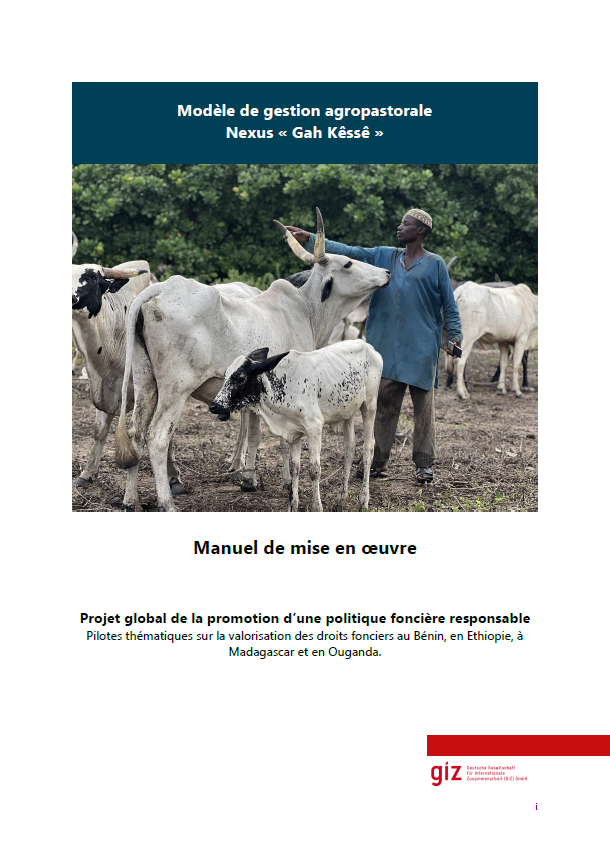Can sustainable management of land commons offer a nature-positive solution? Initial insights from land use-based above-ground carbon stock modeling in the Thoria Watershed, India
A wealth of publicly available satellite data and open-source models allowed researchers to measure carbon stocks in a watershed in India, despite a paucity of on-the-ground data. They found that despite rapid urbanization over the last 20 years, carbon stocks remained relatively stable – possibly due to successful reforestation activities.
Evaluation of exclosures in restoring degraded landscapes in the semi-arid highlands of northwestern Ethiopia
Land degradation is a severe environmental problem in the northern and northwestern Ethiopian highlands. As a response to increasing land degradation, rehabilitation of degraded grazing lands through exclosures (exclusion of farmers and domestic animals) has been undertaken.
A framework for disaggregating remote-sensing cropland into rainfed and irrigated classes at continental scale
Agriculture consumes the largest share of freshwater globally; therefore, distinguishing between rainfed and irrigated croplands is essential for agricultural water management and food security.
A critical analysis of soil (and water) conservation practices in the Ethiopian Highlands: implications for future research and modeling
Soil and water conservation have been traditionally part of farming practices for thousands of years. Despite massive efforts to implement modern soil and water conservation practices (SWCPs) in the Ethiopian Highlands, soil erosion increased after the 1970s when social and political events led to a remarkable change in land use.
Gender norms and social transformation of agriculture in Sub-Saharan Africa
There is a paucity of scientific information regarding gender norms and social transformation in the Sub-Saharan region. This has contributed to the insufficient articulation of gender issues in the proposed agricultural programmes and visions, such as the African Union’s Agenda 2063 and the Malabo Declaration.
Spatio-temporal trends of mercury levels in alluvial gold mining spoils areas monitored between rainy and dry seasons in the Peruvian Amazon
Playbook for designing and implementing picture-based insurance
Picture-Based Insurance is a new, innovative way of delivering affordable, comprehensive, and easy-to-understand crop insurance. By relying on visible crop characteristics derived from farmers’ own smartphone pictures, it aims to minimize the costs of loss verification and detect damage at the plot level, making crop insurance more attractive and accessible to small farmers.
Microbial resistance and resilience to drought and rewetting modulate soil N2O emissions with different fertilizers
Future climate models indicate an enhanced severity of regional drought and frequent rewetting events, which may cause cascading impacts on soil nitrogen cycle and nitrous oxide (N2O) emissions, but the underlying microbial mechanism remains largely unknown.
Experts to convene in Cairo for the “Consultation Workshop: Deep Diving into the Agritech Innovation Ecosystem in Egyptâ€
On 7 February 2024 at the InterContinental Cairo Semiramis, CGIAR Centers – Alliance of Bioversity International and CIAT, ICARDA, IWMI, IFPRI, and supported by the CGIAR Accelerate for Impact Platform (A4IP) – in collaboration with the Academy of Scientific Research and Technology of Egypt (ASRT) and under the auspices of the Ministry of Higher Education and Scientific Research of Egypt (M
Towards sustainable food crop production: Drivers of shift from crop production to mining activities in Ghana's arable lands
This study contributes to the observed reduction of arable lands discourse by examining the shift in land use patterns as well as factors influencing farmers' shift from crop production to mining activities. To achieve this, we employed a combination of Geographic Information System (GIS) technology and Cragg's Double Hurdle Econometric Model as analytical tools.
Modèle de gestion agropastorale Nexus « Gah Kêssê »
Le modèle Nexus « Gah Kêssê » est une approche holistique visant à améliorer localement les conditions de vie des populations agropastorales.


